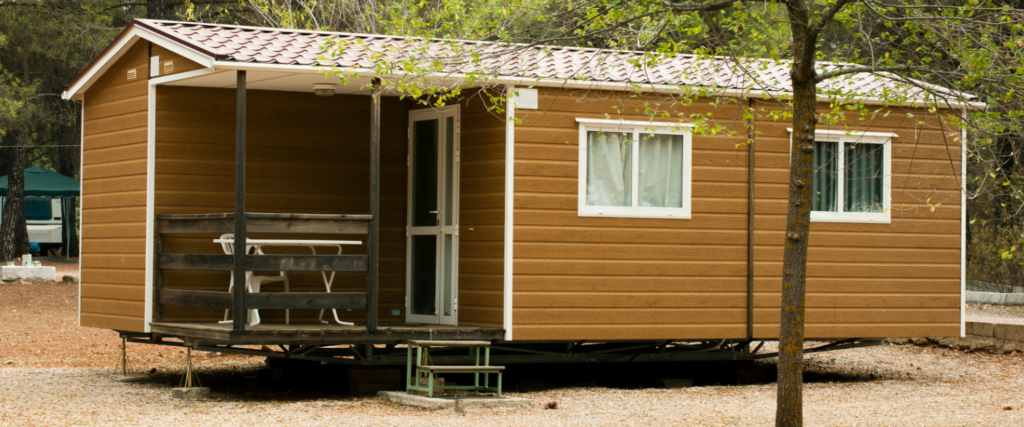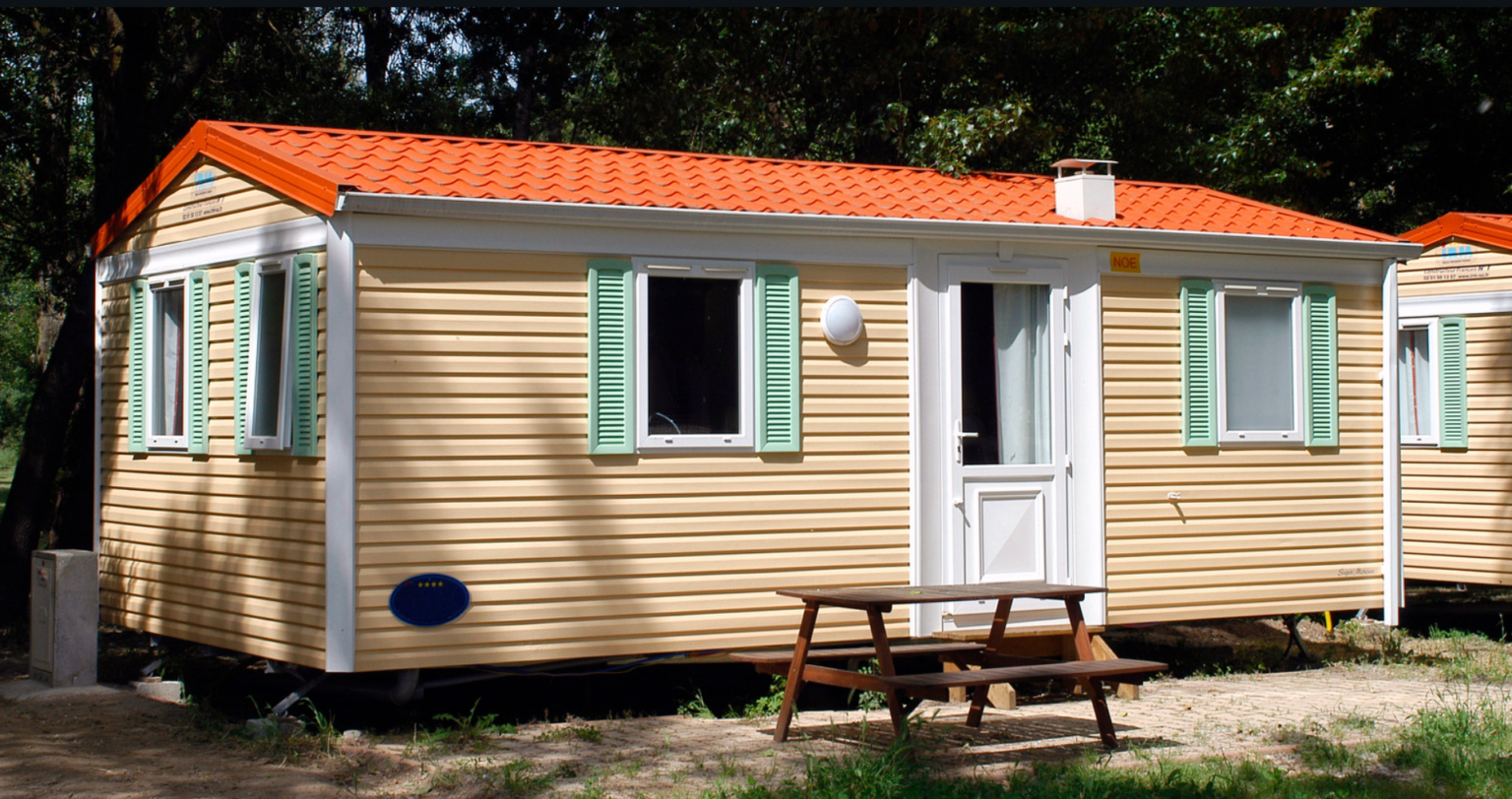Are you wondering how much it costs to move into a mobile home, or do you want to move to a mobile home with a low budget? Then you come to the right place. Here, you can easily find out the real cost of moving to a mobile home, and we can also guide you on how to move to a mobile home easily.
Moving a mobile home is a significant undertaking involving careful planning and understanding the associated costs. Whether you’re relocating a cozy single-wide or a spacious double-wide, the price tag can vary widely based on numerous factors.
From hiring professional moving companies to handling transport-only moves, each aspect of the process adds to the overall expense. Moreover, moving a mobile home isn’t just about transporting it from point A to point B; it encompasses a range of activities, including securing the necessary permits, disconnecting and reconnecting utilities, and ensuring the home is safely anchored at its new location.
The costs involved can be quite complex, with variables such as the distance of the move, the size of your mobile home, and additional services provided by the mobile home mover playing crucial roles. This blog post will explore “How Much Does It Cost to Move a Mobile Home?”
You’ll gain a comprehensive understanding of the factors that influence move costs and discover practical tips to manage these expenses effectively. Whether you need a complete breakdown of costs for a full-service move or insights into the nuances of a transport-only move, you’ll find all the essential information here.
Factors Influencing the Cost of Moving a Mobile Home

When it comes to uprooting a dwelling from its familiar patch of land to a new locale, the task isn’t just Herculean; it’s a meticulously orchestrated ballet of logistics and legalities.
The endeavor of relocating a mobile home, or as the industry prefers, a manufactured home, involves a curious blend of physics, geography, and law.
The cost to move a mobile home is not just a line item. It’s a narrative woven from various factors, each adding its thread to the financial tapestry.
1. Size and Weight of the Mobile Home
The architecture of your abode on wheels plays a pivotal role in dictating the moving budget. From the cozy confines of a single-wide mobile home to the expansive realms of a double-wide.
Each increment in structure size and weight isn’t just about more space it translates into more pounds per square foot, requiring more power and precaution during transit.
The heavier and larger your mobile home, the heftier the cost. The logistics involved in maneuvering a double-wide mobile home through narrow passages or over bridges demands skill and a surge in spending.
2. Distance of the Move
How far you intend to move your mobile home significantly swings the cost pendulum. A jaunt across town might not dent your wallet as deeply as a cross-country trek. The further the distance, the more fuel, time, and driver stamina you need to fund. Additionally, longer routes might require more complex navigation and logistics, escalating the overall expenses.
3. Permits and Regulations
Each state curates its quilt of regulations concerning mobile home moves. Navigating this regulatory maze involves acquiring the right moving permits, which can vary not just by state but also by the route taken.
The complexity of these permits and the fees associated with them can significantly impact the overall cost. Whether traveling from the sun-kissed beaches of Florida to the rugged landscapes of Montana, each mile might need a different kind of bureaucratic nod.
4. Preparation and Labor Costs
A symphony of preparation must unfold before your mobile home can even hit the road. This includes disconnecting utilities, securing all movable features, and ensuring the structure is road-worthy.
The complexity and duration of the tasks involved influence the labor costs for these preparations. Engaging professional mobile home moving companies ensures that this phase is handled efficiently, although it adds to the cost.
Breakdown of Costs
Navigating the fiscal seas of relocating a mobile home, one might wonder, “How much does it cost to move a mobile home?” The costs are as varied as the homes, shaped by distance, size, and required services.
1. Transportation Fees
Transportation fees, which encompass the cost of hiring professional movers and moving trucks, are the backbone of mobile home relocation expenses.
The price per mile can significantly affect the total cost, especially if your abode is a grand double-wide or an older mobile home, which may require special handling.
The costs might seem manageable if you need to move your home just 10 miles away. However, the total fee rises every mile, making long-distance relocations pricier.
2. Setup Costs at New Location
Once the journey ends, the setup begins. The cost to move a mobile home includes more than just transportation; it encompasses the setup costs at the new mobile home park.
This involves anchoring the home, connecting utilities, and ensuring everything is up to local codes. Depending on the type of mobile home and the regulations of the new location, these expenses can add considerably to the overall cost.
3. Additional Services
Sometimes, moving a mobile home isn’t just about transporting it from point A to point B. Certain jurisdictions may demand escort vehicles for larger homes, adding to the cost.
Storage costs might also apply if you’re not ready to move into the new location immediately. These additional services ensure a smooth transition but remember; each adds a layer to the total expense.
Average Cost Estimates
Moving a mobile home is a dance of precision and planning, a ballet that varies wildly in cost depending on several factors. How much does it cost to move a mobile home? The answer isn’t straightforward it swings like a pendulum based on distance, size, and complexity.
Let’s break it down by scenarios: short vs. long distance and single-wide vs. double-wide (including the mammoth triple-wide!). Starting with distance, a local move might only set you back a few thousand dollars in the neighborhood of $1,000 to $5,000.
This cost often includes the essentials like permits and escort vehicles, but always double-check what your moving service bundles into the price. As for the long hauls, stretching beyond 100 miles, the figures stretch too, potentially reaching up to $15,000, especially if state lines are crossed, and additional permits and escorts are needed.
Now, let’s move on to the size of the mobile home. A single-wide move is generally lighter on the wallet, averaging between $1,000 to $8,000 depending on the journey’s complexity and distance. With its broader beam, the double-wide commands more, typically from $2,000 to $10,000.
And if you’re the proud owner of a triple-wide mobile home, brace for an impact on your budget. Such a colossal structure demands more logistical planning and can, under the right (or wrong) circumstances, touch the $20,000 mark.
Every mobile home move may also need specific adjustments based on local regulations, road accessibility, and the physical state of the home itself. Additionally, don’t forget about mobile home insurance. It’s a safeguard worth considering, as it protects your home against unforeseen damages during the trek.
How to Save Money When Moving a Mobile Home?
Moving a mobile home can be a daunting task, especially when trying to keep costs under control. To ensure the journey doesn’t strain your wallet, consider these creative yet practical tips:
- Flexibility with Your Dates: Like airlines, mobile home transport costs can vary significantly depending on the time of year. Planning your move during off-peak seasons can slash prices dramatically.
- Compare Multiple Quotes: Dive into the competitive market of mobile home movers. Requesting detailed quotes from several companies allows you to compare and pinpoint the best deal, often saving considerable amounts.
- Check Mover Credentials: Safeguard your move by verifying the movers’ credentials and experience. Opting for a reputed full-service mobile home mover can prevent costly mishaps.
- Understand the Factors Influencing Costs: It is crucial to know what impacts the average cost to move a mobile home. The size of the mobile home, whether you need to transport it across state lines, and its weight (the heavier the mobile home, the higher the cost) all play significant roles.
- Size Matters: The cost of moving a double-wide mobile home or a smaller model is affected by size. Larger homes require more resources and logistics, increasing the price.
- DIY Some Tasks: You can handle some moving tasks yourself. Preparing your home for the move or securing necessary permits can reduce your overall expenses.
- Get a Clear Breakdown of Services: Understanding what you’re paying for can help you cut unnecessary costs. Ensure the quote includes a detailed breakdown of all services the mover provides.
Moving your mobile home doesn’t have to break the bank if you are well-informed and strategic. Remember, the more knowledge and flexibility you have, the more potential you have to save.
FAQs About Moving a Mobile Home
What is the cheapest time of year to move a mobile home?
The cheapest time to transport your mobile home is during the off-peak seasons, typically late fall through early spring. During these months, the demand for mobile home transport services decreases, leading to potentially lower rates.
Movers might offer discounts to keep their business running, allowing you to significantly reduce the average cost of moving. Always consider the regional weather conditions, as they might affect the move. But generally, avoiding the busy summer months can lead to substantial savings.
Can I move a mobile home by myself?
Moving a mobile home by yourself can be extremely challenging and is generally not recommended unless you have experience and the necessary equipment. Mobile home transport requires special permits, tools, and knowledge of local regulations.
The size and weight of the mobile home make it a task that typically requires professional handling. For safety and legality, it’s best to hire a full-service mobile home mover who can efficiently manage the complexities involved in such a large-scale move.
What are the most common unforeseen costs when moving a mobile home?
When transporting a mobile home, several unforeseen costs can arise. These might include additional fees for obtaining the necessary permits, especially if crossing state lines. After an initial assessment, unexpected repairs to the mobile home or the towing setup might be required.
Costs associated with preparing the new site (like foundation setting, utility hookups, and landscaping) can escalate quickly if not properly estimated beforehand. Always have a contingency budget to cover these potential surprises.
How long does it take to move a mobile home?
The timeframe for moving a mobile home can vary widely based on several factors, including the distance of the move, the size of the home, and the preparation needed both at the origin and destination. Preparing and securing a mobile home for transport typically takes a few days to a week.
The transport itself varies from one day to several weeks. A local move might be completed within a day, but a cross-country move could take much longer. Coordination with a full-service mobile home mover can help streamline this process and clarify the timeline.
Conclusion
The cost of moving a mobile home varies significantly based on factors such as the home’s size, distance of the move, and the specific requirements involved. Professional mobile home movers are crucial in managing the complexities that arise, from securing permits to ensuring safe transport.
Remember, moving a mobile home requires detailed planning and a clear understanding of all potential costs. Budgeting for unforeseen expenses and choosing the right time of year can also help mitigate some financial strain.
Careful planning and budgeting are indispensable as you prepare to position your home in a new location. With thorough preparation, relocating your mobile home can be as smooth and cost-effective as possible.








